您们的需要 我们的专注
Your Needs Our Focus
财经快讯
-
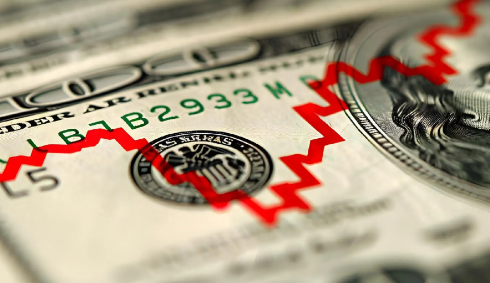 查看详情
查看详情美聯儲:政府債券吸引力下降,推動關鍵利率上升
紐約聯儲的研究人員表示,全球一項關鍵利率正在上升,而主要原因似乎是政府債券在安全性和流動性方面的吸引力下降。 所謂的“自然利率”——即在經濟處於充分就業、通脹穩定情況下的短期利率,自2019年以來出現了“統計上顯著的上升”。紐約聯儲研究人員們在一篇博客文章中表示,美國及其他發達經濟體的自然利率已上升約1個百分點。 研究人員指出,盡管還有其他因素推動利率上升,但投資者對政府債券作為安全資產的興趣減弱,可能占到了自然利率上升幅度的一半之多。這一點可以從美國公司債券利差的收窄中看出。這種變化有多種原因,可能包括發達經濟體政府債務的激增。 盡管自然利率只是一個理論概念(在經濟分析中常被稱為r-star),但它之所以重要,是因為它會影響央行在制定市場利率時的決策。美聯儲主席鮑威爾曾在2018年懷俄明州傑克遜霍爾舉行的年度央行研討會上形容,自然利率就像水手航行時依賴的一顆重要恒星。 紐約聯儲的文章指出,經過統計分析,美國的自然利率及其全球對應指標在新冠疫情後時期都顯示出顯著上升。而在此前(1990年至2019年期間),“投資者對安全性(以及流動性)的偏好推動發達經濟體的政府債券收益率持續下降”,可以說也帶動了中性利率的下行。 研究人員還表示,在後疫情時代推動利率上升的其他可能因素包括:人工智能驅動的生產率增長前景。此外,面對人口結構轉型的經濟體,其債務與GDP比率可能上升,以及對更高軍費支出的預期,也可能是推高自然利率的原因之一,或兩者兼而有之。 風險提示及免責條款 市場有風險,投資需謹慎。本文不構成個人投資建議,也未考慮到個別用戶特殊的投資目標、財務狀況或需要。用戶應考慮本文中的任何意見、觀點或結論是否符合其特定狀況。據此投資,責任自負。
2026-02-26 -
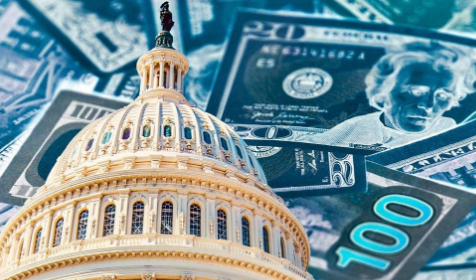 查看详情
查看详情美聯儲理事警告:貨幣政策可能無法應對AI引發的失業潮
美聯儲理事庫克(Lisa Cook)周二發出警告,人工智能(AI)驅動的勞動力市場重組可能令貨幣政策陷入兩難困境——降息既無法有效應對結構性失業,又可能推高通脹。這一判斷標誌著美聯儲內部對AI有何經濟影響的討論正在深化。 庫克在全國商業經濟學會年度政策會議上發表演講時表示,“我們似乎正在逼近數代人以來最深刻的就業重組”,在經濟轉型過渡階段,“崗位替代可能先於崗位創造,失業率或將上升,勞動力參與率也可能下降。” 庫克認為,AI已引發美國勞動力市場的代際更叠,並可能導致失業率上升,而美聯儲或許無法通過降息應對。她警告: “在這種生產力繁榮時期,失業率上升未必意味著經濟出現更多閑置產能。因此,在應對AI導致的失業問題時,我們常規的需求側貨幣政策可能無法在不引發通脹(上行)壓力的情況下發揮作用。” 庫克的表態在市場敏感時點落地。上周末,一家名為Citrini Research的機構發布了堪稱“2028年末日預言”的報告,詳述AI對全球多個經濟領域的潛在沖擊風險,引發本周一美股軟件、送餐和支付類股以及金融股大跌。 和庫克同在周二發表講話的另一美聯儲理事沃勒(Christopher Waller)持有不同於Citrini的看法。他在另一場合表示,Citrini的報告“誇大了AI對就業的潛在影響”,並強調“AI是一種工具,它不會取代我們作為人類的存在。” 貨幣政策面臨通脹與失業的新型兩難 庫克的核心論點在於,AI引發的失業與傳統意義上的周期性失業存在本質區別,前者源於結構性調整而非總需求不足,這使得貨幣政策工具的有效性大打折扣。 她明確指出,當生產力持續提升、經濟增長保持強勁時,勞動力市場“汰換”所造成的失業率上升並不代表經濟存在過剩產能。在這種情形下,若美聯儲仍采用傳統的需求側工具加以應對,則可能在無法實質性解決就業問題的同時,額外推高通脹。 庫克表示:“貨幣政策的決策者將面臨失業與通脹之間的取舍……教育、勞動力培訓以及其他非貨幣政策手段,或許更適合以更有針對性的方式應對這些挑戰。” 庫克同時強調,目前尚無法判斷此輪勞動力市場轉型的確切走勢及烈度。就業市場已出現早期信號——編程等AI滲透最深的職業領域用工需求明顯下滑,應屆大學畢業生失業率在過去數年持續攀升,原因之一是部分雇主正將AI引入此前由入門級員工承擔的工作。 不過,她也指出,"整體失業率仍處於4.3%的低位,近期裁員指標依然溫和。" AI或先推高、後壓低中性利率 除就業市場外,庫克就AI對中性利率的短期與長期影響分別給出了方向相反的判斷,這也是本次演講的另一個政策焦點。 她表示,在生產力紅利尚未全面兌現之前,圍繞AI的大規模商業投資——包括數據中心與芯片采購——正在拉動總需求走強,“當前的中性利率有可能高於疫情前水平。” 這一判斷與部分美聯儲官員的觀點呼應,後者近期已陸續提出AI引發的生產力繁榮可能擡升中性利率水平。 但庫克同時提示了這一邏輯的反轉風險。她指出: “當AI的生產力收益更充分實現時,或者如果勞動力市場轉型導致收入不平等加劇,使富裕消費者獲得更大的收入份額,這一趨勢可能逆轉,中性利率在其他條件不變的情況下將隨之下降。” 庫克在會後的小組討論中補充道,AI的影響或許需要五到十年才能在全經濟層面的生產率統計數據中顯現。 她同時表示,美聯儲已將AI納入預測模型,包括其對中性利率的潛在影響以及數據中心投資對經濟增長的帶動效應。 美聯儲內部圍繞AI的政策討論漸趨深化 庫克的講話是美聯儲政策官員近期就AI相關貨幣政策含義密集發聲的最新一例,反映出這一議題在美聯儲內部已從邊緣課題逐步升至決策層視野的核心區域。 此前連續三次降息25個基點後,美聯儲在今年1月的最近一次FOMC貨幣政策會議上決定將政策利率維持不變,理由是勞動力市場出現企穩跡象。 期貨市場定價顯示,投資者目前預計美聯儲最早至今年年中才會重啟降息。庫克在此次演講中未就短期貨幣政策走向表態,但提及1月會議後發布的最新勞動力市場數據,認為相關數據強化了市場企穩的判斷。 在加入美聯儲之前,庫克本人已深耕創新經濟學研究逾二十年,並在研究中運用機器學習方法,此番演講也因此兼具政策與學術雙重維度。 她在會議開幕致辭中表示,雖然保持審慎,但對AI長遠的前景感到樂觀,認為AI技術最終將推動產品與流程創新,“讓我們的生活變得更好。” 風險提示及免責條款 市場有風險,投資需謹慎。本文不構成個人投資建議,也未考慮到個別用戶特殊的投資目標、財務狀況或需要。用戶應考慮本文中的任何意見、觀點或結論是否符合其特定狀況。據此投資,責任自負。
2026-02-25 -
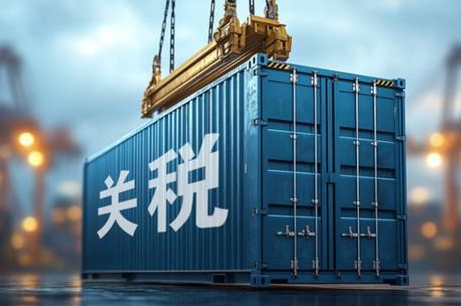 查看详情
查看详情特朗普10%“全球關稅”今日生效,15%關稅實施時間表尚未敲定
特朗普10%“全球關稅”今日已經正式生效。 據央視新聞,日前美國白宮公告,對進口到美國的商品征收10%的從價進口關稅,為期150天,將於美國東部時間2月24日0時01分生效。 據媒體援引一位不願具名的政府官員稱,白宮正在準備把全球關稅基準提高到15%的正式命令,但實施時間表尚未敲定。 不確定性迅速外溢至談判桌與企業決策端。主要貿易夥伴包括歐盟與印度已因政策前景不明而暫停相關安排。 《貿易法》122“接力”,10%關稅獲得150天窗口 據彭博,特朗普此次動用的是1974年《貿易法》122條款,可在無需國會批準的情況下征收關稅最長150天。 白宮改用該路徑,直接原因是最高法院認定特朗普此前援引緊急權力法律推出所謂“對等關稅”違法,從而迫使其更換工具以維持關稅框架。 新行政令保留了部分豁免,包括某些關鍵礦物、用於貨幣和金銀條塊的金屬、能源及能源產品;無法在美國種植、開采或以其他方式生產的自然資源和化肥等。 豁免使得有效稅率低於名義稅率,也令不同國家、不同行業的實際沖擊出現分化。 15%懸念攪動全球談判,歐盟與印度按下暫停鍵 稅率是否上調至15%以及何時上調,成為當前最大變量。媒體稱,不清晰的信號已在全球引發困惑,各國政府與跨國公司正重新審視既有貿易協議,以評估在最新威脅下的適用邊界與成本變化。 歐盟周一宣布,在特朗普明確最新關稅計劃前,將凍結與美國協議的批準程序。印度方面則以類似理由推遲本周在美國舉行的會談,原計劃討論敲定一項臨時貿易協議。 與此同時,特朗普周一還警告,對那些在既有協議上“玩遊戲”的夥伴將征收更高關稅。 “關稅墻”重建的工具箱:301與232更慢、更不靈活 特朗普團隊已重申關稅仍是其貿易政策核心,並計劃以更快時間表啟動一系列調查,以便在無需國會參與的情況下加征關稅,目標是重建被法院裁決“摧毀”的關稅體系。 但彭博指出,白宮目前提及的Section 301、Section 232等授權,靈活性不及此前動用的緊急權力工具,而且相關調查可能需要數月才能完成,迄今也尚未宣布新的調查。 在應對法院裁決之際,政府官員要求貿易夥伴繼續遵守過去一年與美國談成的協議。美國貿易代表Jamieson Greer在CBS《Face the Nation》節目中表示,“我們希望他們理解這些協議會是好協議,我們會遵守,也希望夥伴遵守。” 不過這一表態並未完全消除主要經濟體對政策反復的擔憂。歐洲央行行長Christine Lagarde同日在該節目中稱,全球貿易“獲得美國政府的明確性”至關重要。 國情咨文前落地,民意博弈升溫 特朗普即將向國會發表國情咨文演講,現場將有反對其部分貿易政策的民主黨人及部分共和黨人出席。彭博稱,演講預計聚焦經濟議程,共和黨正嘗試形成中期選舉信息,以回應選民對生活成本的不滿。 民意壓力也在上升。據《華盛頓郵報》、ABC與Ipsos聯合調查,64%的美國人不認可特朗普處理關稅的方式,僅34%表示認可。 風險提示及免責條款 市場有風險,投資需謹慎。本文不構成個人投資建議,也未考慮到個別用戶特殊的投資目標、財務狀況或需要。用戶應考慮本文中的任何意見、觀點或結論是否符合其特定狀況。據此投資,責任自負。
2026-02-24 -
 查看详情
查看详情“人造太陽”排隊上市,去年核聚變初創公司融資次數創歷史新高
隨著核聚變行業逐步逼近商業化現實,相關初創公司正加速從實驗室走向資本市場,頭部企業通過SPAC上市的步伐正在加快。 據《金融時報》引用PitchBook的數據顯示,風險投資公司去年參與了43輪核聚變領域的融資,創下歷史記錄;總投資額達到23億美元,為2021年以來的最高水平。投資者正大舉湧入這一領域,寄希望於這項承諾提供廉價、豐富且無碳能源的技術終將具備經濟可行性。 盡管大部分資金仍來自私募市場,但頭部企業已開始尋求公開上市以支持耗資數十億美元的項目。 General Fusion上月宣布將通過與SPAC合並上市,估值約10億美元,預計2026年中期完成交易後將成為首家上市的純核聚變公司。此外,TAE Technologies也表示計劃通過與特朗普媒體與科技集團(Trump Media & Technology Group)進行全股票合並尋求上市,估值達60億美元。 資本湧入與上市熱潮 核聚變技術旨在復制太陽產生能量的反應,通過極端高溫或高壓迫使原子核結合以產生能量。與產生核廢料的裂變不同,聚變被視為清潔能源的“聖杯”。盡管目前尚無私營核聚變公司實現商業上可行的聚變,即證明其技術產生的電力多於消耗的電力,但這並未阻擋資本的步伐。 市場數據顯示,投資者對該行業的興趣已延伸至散戶群體。數據提供商SPACInsider的創始人兼首席執行官克裏斯蒂·馬文(Kristi Marvin)表示,散戶投資者“熱愛任何具有未來感的事物”。她指出,盡管這些公司的商業化前景非常遙遠,但散戶對此並不畏懼。 此次General Fusion的上市交易結構也反映了市場的樂觀情緒。作為SPAC交易的一部分,來自機構投資者的PIPE資金定價不僅高於發行價,且公司估值達到了10億美元級別,標誌著行業正從單純的概念驗證轉向更深度的資本運作階段。 行業分化與建設周期 隨著資金的湧入,核聚變行業內部的融資動態開始出現分化。 目前融資最多的核聚變公司——聯邦聚變系統公司(Commonwealth Fusion Systems,簡稱CFS)已籌集約30億美元。該公司高級副總裁艾麗·約斯特(Ally Yost)指出,行業正在經歷轉變:新進入者雖然融資輪次增多,但單筆金額較小;而成熟的頭部企業則進入了“資本密集度更高”的階段。 這種轉變源於企業正從PPT概念階段轉向昂貴的物理機器建設階段。大多數領跑者正在開發示範裝置,即未來發電廠的縮小版,旨在證明技術的可行性。 根據約斯特的說法,CFS正在建造預商業化裝置,並計劃在2030年代初在美國建設其首座商業電廠。另一家資金雄厚的公司Helion Energy則設定了更激進的目標,計劃在2028年底前實現首次電力銷售。General Fusion目前也在測試其預商業化裝置。 不同的押註策略與市場質疑 面對巨大的資金需求,各家公司的策略亦有所不同。 General Fusion首席執行官格雷格·特溫尼(Greg Twinney)表示,盡管2025年面臨融資挑戰,但該公司采取了比競爭對手更為謹慎的方法。與其在單一機器上進行“數十億美元的押註”,該公司選擇在較小規模上測試單個組件。特溫尼認為,這種方法可以用“少一個數量級的資本”實現類似的裏程碑。 然而,市場對此類高估值仍存在明顯的質疑聲。由於核聚變仍是一項未經證實的技術,且通往商業應用的道路漫長,部分金融界人士發出了警告。 清潔能源投資銀行Marathon Capital的創始人兼首席執行官泰德·布蘭特(Ted Brandt)指出,這些未經證實的技術距離產生現金流還有數年之久,卻獲得了“瘋狂的估值”。他質疑這種現象的合理性,並表示這本質上意味著市場“都在資助下一個SpaceX”。 風險提示及免責條款 市場有風險,投資需謹慎。本文不構成個人投資建議,也未考慮到個別用戶特殊的投資目標、財務狀況或需要。用戶應考慮本文中的任何意見、觀點或結論是否符合其特定狀況。據此投資,責任自負。
2026-02-11 -
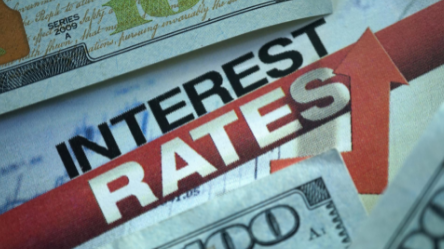 查看详情
查看详情貝森特:美聯儲可能不會迅速縮表
美國財政部長貝森特周日表示,即便是在此前批評央行債券購買計劃的沃什被提名美聯儲主席的情況下,他不認為美聯儲會迅速采取行動縮減資產負債表。 據路透報道,貝森特在福克斯新聞頻道的“周日早間期貨”節目中指出,美聯儲可能需要長達一年的時間來對其資產負債表作出決定。這一表態為市場提供了關鍵的政策預期指引,暗示貨幣當局在資產負債表管理上將采取審慎和觀望的態度。 貝森特強調,資產負債表的調整取決於美聯儲自身的意願,如果轉向“充裕(儲備)機制”政策,實際上需要維持較大的資產負債表規模。他預計美聯儲“可能會先退一步,至少花一年時間來決定他們想要做什麽”,這表明短期內大規模的量化緊縮加速或急劇轉向的可能性較低。 此番言論正值市場關註新任美聯儲主席提名人可能帶來的政策變動之際。盡管沃什此前曾主張削減美聯儲持倉,但財政部長的最新表態緩解了對於貨幣政策可能迅速收緊並沖擊市場流動性的擔憂。專家分析認為,總統特朗普希望大幅降低抵押貸款利率,而激進縮表將與此目標背道而馳,且難以在維持金融穩定的同時實現。 審慎的政策路徑與時間表 貝森特明確表示,沃什將是一位非常獨立的美聯儲主席,關於資產負債表的具體操作將完全由美聯儲決定。但他同時給出了較為明確的預期管理,即不應期待任何快速的行動。 貝森特指出,如果美聯儲決定采取所謂的“充裕(儲備)機制”政策,這將從結構上要求央行維持較大規模的資產負債表。基於此邏輯,他推測美聯儲決策者可能會選擇暫時按兵不動,“至少花一年時間”來審視和規劃未來的路徑。這一時間表的提出,為投資者評估未來流動性環境提供了一個較長的緩沖期。 美聯儲資產負債表的演變 回顧歷史數據,美聯儲的資產負債表在全球金融危機及COVID-19大流行期間大幅擴張,旨在壓低長期利率。該規模在2022年夏季達到9萬億美元的峰值。隨後,美聯儲啟動了被稱為量化緊縮的過程,允許其持有的資產到期不續做,使得資產負債表規模在2025年末降至6.6萬億美元。 然而,在去年12月,美聯儲開始通過購買國庫券的技術性操作,再次增加了債券持有量。此舉旨在確保金融系統擁有充足的流動性,從而有力地控制其利率目標區間。這一近期舉動顯示出,維持系統流動性穩定已成為美聯儲當前操作的重要考量。 提名人立場與政策目標的平衡 市場關註的焦點之一在於美聯儲主席提名人沃什的政策傾向。沃什曾在2006年至2011年擔任美聯儲理事,他曾爭辯稱美聯儲龐大的資產持有量扭曲了經濟中的融資狀況,並主張應當大幅削減目前的持有量。 然而,這一鷹派立場面臨現實挑戰。據路透報道,專家指出,美國總統特朗普已表示希望抵押貸款利率能夠大幅下降。縮減美聯儲資產負債表通常會對長期利率產生上行壓力,這不僅會阻礙降低抵押貸款利率目標的實現,同時也難以在保持金融穩定的前提下完成。貝森特的言論暗示,在多重政策目標和現實約束下,即便是沃什上任,激進的縮表計劃也可能讓位於更為穩健的策略。 風險提示及免責條款 市場有風險,投資需謹慎。本文不構成個人投資建議,也未考慮到個別用戶特殊的投資目標、財務狀況或需要。用戶應考慮本文中的任何意見、觀點或結論是否符合其特定狀況。據此投資,責任自負。
2026-02-09 -
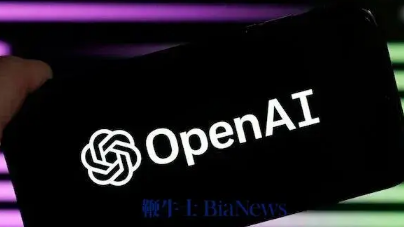 查看详情
查看详情為何科技巨頭們都要斥巨資投OpenAI?
所謂的千億美金融資,本質上是科技巨頭們為了防止AI泡沫破裂而不得不進行的一場自救式“供血”。 2月4日,據The Information資深記者Ken Brown報道,OpenAI正在籌集一筆高達1000億美元的融資。英偉達可能打算投300億,亞馬遜200億,軟銀300億,微軟也得跟100億。 在OpenAI 7300億美元的離譜估值下,這些聰明人為什麽搶著送錢,在Brown看來,邏輯非常直白。 銀行不信OpenAI了,巨頭只能自己上 以前OpenAI很聰明,它自己不借錢,而是讓甲骨文(Oracle)、CoreWeave、Vantage數據中心在內的合作夥伴利用自身的資產負債表去借錢建數據中心,OpenAI未來再通過合同付款。 OpenAI相當於“畫餅”,合作夥伴拿餅去銀行換貸款。然而,這種策略現在面臨巨大的市場阻力。Ken Brown指出: “投資者已經表明,他們願意向依賴OpenAI來支付未來賬單的公司提供的貸款是有限的。” 現在,債市的投資者也清醒了。他們發現OpenAI燒錢太快,未來根本付不起房租。於是,投資者推高了甲骨文等公司的融資成本,甚至把它們的債券當成“垃圾債”來對待。 他們意識到,如果OpenAI未來現金流無法覆蓋這些債務,作為“包工頭”的合作夥伴將面臨違約風險。正如報道所言: “這種策略可能不再適用,或者可能會變得非常昂貴。” 當下諷刺的現實是,甲骨文為了籌錢,甚至被迫宣布要賣股票來湊數,直接把市場焦慮拉滿了。Janus Henderson的信貸研究主管Mike Talaga直言: “甲骨文竟然願意稀釋股權來籌資,這讓市場大吃一驚。” 華爾街見聞昨日提及,面對甲骨文龐大的AI基礎設施融資需求,華爾街銀行的資產負債表已近極限。為了緩解風險敞口並騰出額度繼續放貸,銀行正急於將手中持有的與Oracle數據中心項目相關的數百億美元貸款通過“證券化”評級,轉手賣給保險公司和私募信貸基金。 而當銀行不再給OpenAI的“包工頭”們貸款時,OpenAI的機房建設就得停工。 但科技巨頭為什麽願意當“兜底人”? 當外部融資渠道收緊,科技巨頭們坐不住了。如果機房停了,OpenAI就沒法訓練模型;沒法訓練模型,它就不需要英偉達的芯片,也不需要微軟的雲服務。 於是,這場1000億美元融資變成了“循環融資”: 微軟給錢,是為了保住那2500億美元的Azure雲訂單。微軟持有OpenAI公共利益公司(PBC)約27%權益,且OpenAI已同意采購微軟Azure約2500億美元服務。 亞馬遜給錢,本質是換取更多雲業務。是為了鎖死那380億美元的雲合同。 英偉達給錢,是為了讓OpenAI有錢回頭買自己的GPU。是“鎖增長、防競爭”的手段。 這就是典型的“我借錢給你,讓你來買我的東西”。 其次,給OpenAI現金,是讓供應鏈的債主安心。 巨頭資金進入後,OpenAI獲得“能付賬”的確定性,供應鏈融資才不會被債市繼續擡價。對OpenAI而言,這是爭取時間窗口:等收入和利潤“長到足以自我供血”,或者至少把市場融資渠道重新打開。 再次,科技巨頭們把資本支出壓力外置成“投資”,避免自家報表更難看,這樣股價才能穩住。 作者Ken Brown強調,巨頭直接投OpenAI的一個現實好處是:這些錢不計入自身資本開支,也不必通過新增債務來籌(至少目前如此)。在AI資本開支被市場緊盯的當下,這種會計與融資口徑差異,能顯著緩解短期估值壓力。 誰也輸不起的搶凳子遊戲 為什麽不能讓OpenAI倒閉?因為系統性風險太大了。 目前的科技巨頭股價裏,大部分是“AI溢價”。如果OpenAI因為沒錢交電費和買芯片而倒下,整個AI賽道的邏輯就塌了。市場創始人Mark Montgomery形容這就像“搶凳子遊戲”: “除非OpenAI奧特曼能找到更多資金讓氣球保持膨脹,否則一旦崩盤,大科技公司的市值可能會縮水50%到80%。” 說白了,巨頭們不是覺得OpenAI值7300億,而是如果不花這1000億買個平安,他們自己縮水的市值將是這個數字的十倍。 Marathon Venture Capital合夥人Panos Papadopoulos在評論區寫道:“如果OpenAI減少對超大規模雲廠商的承諾支出,他們會損失1萬億美元市值,那朋友之間100億美元算什麽?” 同樣的“融資舞步”也出現在馬斯克的交易中。 文章提到,SpaceX在2025年創造約80億美元EBITDA,而xAI在去年前九個月燒掉約95億美元。兩家公司合並,將把xAI的高消耗“藏”進更大的現金流外殼裏——邏輯與“巨頭用現金護住OpenAI的融資鏈”高度同構。 風險提示及免責條款 市場有風險,投資需謹慎。本文不構成個人投資建議,也未考慮到個別用戶特殊的投資目標、財務狀況或需要。用戶應考慮本文中的任何意見、觀點或結論是否符合其特定狀況。據此投資,責任自負。
2026-02-05 -
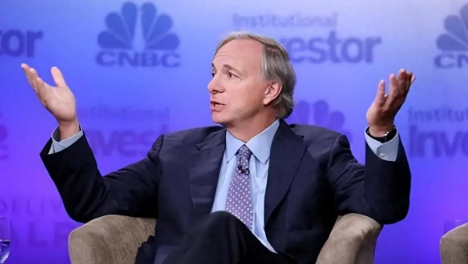 查看详情
查看详情達利歐警告:我們正處在“資本戰爭”邊緣
橋水基金創始人達利歐(Ray Dalio)警告稱,在地緣政治緊張局勢和資本市場波動加劇的背景下,全球正處於"資本戰爭"的邊緣。 2月3日,據CNBC報道,達利歐在阿聯酋迪拜舉行的世界政府峰會上接受CNBC采訪時表示,"資本戰爭"是指通過貿易禁運、阻止進入資本市場或利用債務所有權作為杠桿等措施將資金武器化。 這位傳奇投資者強調,盡管尚未陷入"資本戰爭",但已非常接近這一臨界點,相互恐懼可能輕易將世界推入這場以金錢為武器的沖突。他指出,特朗普政府近期對格陵蘭的舉動,已導致緊張局勢升級。據新華社報道,此前,特朗普政府曾威脅若不滿足其對丹麥領土格陵蘭島的要求,將對歐洲發動貿易戰,甚至不排除動用軍事力量。 歐洲持有美元資產的投資者擔心可能遭受制裁,而美國方面也擔憂無法獲得歐洲的資本支持。根據花旗研究數據,去年4月至11月期間,歐洲投資者占美國國債外國購買量的80%。達利歐強調,"資本和金錢至關重要",全球各地正在實施資本管制,主權財富基金和央行已在為此類管制做準備。 在市場劇烈波動之際,達利歐重申黃金仍是最佳避險資產,建議投資者保持多元化投資組合以應對不確定性。 "資本戰爭"風險顯著上升 達利歐明確表示,當前世界"正處於邊緣",意味著雖未進入"資本戰爭"狀態,但已相當接近。"我們很容易越過邊緣進入"資本戰爭",因為存在相互恐懼,"他說。 他特別提到歐洲投資者對持有美元資產的擔憂,害怕遭受制裁。與此同時,美國也擔心可能無法獲得資本或失去歐洲買家的支持。這種雙向恐懼正在加劇"資本戰爭"的風險。 達利歐指出,資本管制正在全球範圍內發生,主權財富基金和央行等機構已在制定應對措施。他強調:"我們正處於邊緣——這並不意味著我們現在就處於"資本戰爭"中,但這意味著這是一個合理的擔憂。" 達利歐援引歷史案例警示當前風險。他指出,"資本戰爭"歷來圍繞"重大沖突"展開。在美國參加第二次世界大戰之前,美國對日本實施制裁,使兩國"爭議關系"升級。達利歐表示: "人們可以想象當今世界存在類似情況,甚至不同國家領導人已經討論過美國和歐洲的相互依賴問題。" 他解釋稱,貿易逆差的反面是資本,存在資本失衡,而資本可能被用作戰爭工具。 歷史上的"資本戰爭"通常伴隨外匯管制和資本管制等措施的實施。達利歐警告,當前的地緣政治緊張局勢與歷史上導致"資本戰爭"的環境存在相似之處。 特朗普關稅政策加劇市場波動 自去年重返白宮以來,特朗普對貿易夥伴和政治對手實施了一系列懲罰性關稅,隨後又部分撤回。這些決策引發了金融市場的劇烈波動。 特朗普政府在格陵蘭島問題上的強硬立場進一步加劇了緊張局勢。這一事件凸顯了當前地緣政治環境的脆弱性,以及政策不確定性對全球資本流動的潛在影響。 關稅政策的反復無常不僅影響貿易關系,也對資本市場信心造成沖擊,增加了投資者對資本管制和金融武器化的擔憂。 黃金仍是首選對沖工具 盡管黃金市場近期經歷大幅拋售,達利歐堅持認為黃金仍是存放資金的最佳場所。到周二,黃金和白銀已顯示出初步復蘇跡象。 "不能以日為單位來判斷,"達利歐在被問及近期價格波動是否應質疑黃金作為最安全資本避風港的地位時表示。他指出,黃金較一年前上漲約65%,較高點下跌約16%,投資者不應過度關註短期漲跌。 達利歐建議央行、政府或主權財富基金應考慮在投資組合中保持一定比例的黃金配置。"黃金是一種非常有效的分散投資工具,可以對沖投資組合中表現不佳的部分,"他說。 他強調,黃金作為分散投資工具,在困難時期表現獨特優異,在繁榮時期表現相對較弱,但整體而言是有效的對沖資產。"我認為最重要的是擁有一個多元化的投資組合,"達利歐總結道。 風險提示及免責條款 市場有風險,投資需謹慎。本文不構成個人投資建議,也未考慮到個別用戶特殊的投資目標、財務狀況或需要。用戶應考慮本文中的任何意見、觀點或結論是否符合其特定狀況。據此投資,責任自負。
2026-02-04 -
 查看详情
查看详情融資問題解決了,甲骨文的AI故事可以重新定價了?
甲骨文推出最高500億美元的綜合融資計劃,巴克萊認為這一舉措消除了市場對其AI業務擴張資金來源的最大疑慮,公司股價應該獲得重新定價。 周日晚間,甲骨文宣布了2026年度融資計劃,擬籌集450-500億美元資金。據華爾街見聞此前文章,公司已於周一正式啟動債券發行,規模在200億至250億美元之間,分為八個部分,期限從3年到40年不等。甲骨文承諾這將是2026年內唯一一次債務發行,年內不再發行額外票據。 據追風交易臺消息,巴克萊分析師Raimo Lenschow 2日在研報中指認為,這一消息應被視為利好,將推動股價走高。該機構指出,甲骨文應該是今年軟件行業中少數幾個將看到顯著收入加速的公司之一,並將受益於新興的AI世界,而目前18倍的2027日歷年度市盈率(截至2026年2月1日)並未反映其未來數年預期超30%的增長前景。 融資結構兼顧信用與稀釋 甲骨文的融資方案體現了在維護信用評級和控制股權稀釋之間的平衡。據巴克萊測算,如果公司籌集全部250億美元股權金額,其峰值杠桿率(債務加租賃與調整後EBITDA之比)相比純債務融資方案將降低0.4倍,代價是最多4%的股權稀釋。 股權融資部分的設計顯示出靈活性。最高200億美元的股票市場發行計劃意味著強制可轉換證券的潛在規模約為50億美元。這一計劃允許公司根據市場條件和實際資本需求靈活調整發行節奏。 對於債務部分,多達8個不同期限的債券發行結構將分散再融資風險,3-40年的期限分布也體現了對長期AI基礎設施投資周期的匹配。 解決懸而未決的融資疑慮 巴克萊表示,近幾個月來,圍繞甲骨文的主要爭議在於管理層如何為所有未來AI承諾融資,以及公司是否會過度擴張自身能力。過去6個月該公司股價下跌35%,而同期軟件行業指數IGV下跌19%,信用擔憂是主要拖累因素。 此次宣布提供了更多確定性。市場現在明確了解全年融資需求規模(僅此一筆約500億美元的多部分交易),以及融資結構如何實現。巴克萊指出,額外股權和強制可轉換證券的組合將減少債務需求,同時增強甲骨文的資產負債表,預計交易完成後債務市場將更加平靜。 這一清晰的融資路徑消除了市場對公司財務可持續性的疑慮,使投資者可以重新聚焦於其AI業務的增長潛力。 估值與增長前景脫節 巴克萊維持對甲骨文的增持評級,目標價310美元,較2日收盤價160美元有約80%的上行空間。該機構認為,考慮到近期表現不佳主要由信用擔憂驅動,投資者預計將更關註杠桿率改善相對於稀釋的優勢,股價應有積極反應。 分析師認為,在融資問題解決後,市場將重新審視整體故事,而甲骨文股價"過於便宜"。公司應該是軟件行業今年將看到顯著收入加速的少數幾家公司之一,將受益於新興的AI世界,當前被壓低的估值與其超30%的增長前景並不匹配。 這一融資計劃的宣布為市場提供了重新評估甲骨文AI增長故事的契機,從財務約束的擔憂轉向增長潛力的關註。 風險提示及免責條款 市場有風險,投資需謹慎。本文不構成個人投資建議,也未考慮到個別用戶特殊的投資目標、財務狀況或需要。用戶應考慮本文中的任何意見、觀點或結論是否符合其特定狀況。據此投資,責任自負。
2026-02-03 -
 查看详情
查看详情九天四家餐企申請IPO,港股的窗口期還有多久?
經歷了長達三年的上市空窗期之後,內地餐飲企業正湧向香港排隊尋求上市。 2026年開年半個月內,已有四家餐飲企業向港交所遞交上市申請。1月9日,餐酒吧品牌COMMUNE幻師的公司極物思維有限公司遞表;1月12日,是袁記雲餃所屬公司袁記食品集團股份有限公司;1月16日,比格披薩緊隨其後,成為2026年首家遞交上市申請的西式休閑餐飲企業。早已開啟上市進程的老鄉雞也於1月8日第三次更新了招股書,進一步推進港交所主板上市工作。 過去一年,港交所的鑼聲為多家內地餐飲與消費企業鳴響:“新茶飲第二股”古茗、“性價比奶茶”蜜雪冰城、“區域性茶飲巨頭”滬上阿姨、“連鎖中式餐飲”綠茶餐廳、“川渝風味面館”遇見小面等先後成功上市。 過去幾年,伴隨資本在新消費領域的熱潮,一批曾獲融資的餐飲企業正集中步入退出期。港股因其相對寬松的上市條件和對接全球資本的能力,成為這批企業尋求上市、實現資本退出的重要通道。香頌資本董事沈萌對《財經》表示,當全球的股市和資本都在註重大科技題材的時候,港股還有傳統消費一定的生存空間。 這一波餐飲企業赴港上市的浪潮從2025年延續至今。多位投資及餐飲人士反復提及港股尚在“窗口期”——港股開放、內地監管放松。不過,餐飲行業分析師、餐寶典創始人汪洪棟已經註意到了港股“收緊”的趨勢,很多企業擔心“再不交表就要錯過這輪上市潮”。 不過,即便在這個窗口期內成功上市,市值管理是這些上市公司更長期的問題。市場數據揭示了上市熱潮背後的“冰與火”。Wind(萬得)數據顯示,2025年上市的古茗、綠茶集團、遇見小面均上市即破發,滬上阿姨首日未破發,但上市五個月後跌破發行價。此外,這批餐企上市之後股價走勢的分化持續拉大,有的實現逆勢走高,有的則陷入長期低迷。 2025年12月5日,遇見小面在香港聯合交易所主板掛牌上市。圖/視覺中國 赴港上市熱潮之下,餐飲行業正穿越一個充滿挑戰的周期。國家統計局數據顯示,2025年,全國餐飲收入57982億元,同比增長3.2%,低於GDP(國內生產總值)增速。餐飲收入占社會消費品零售總額的11.6%,較上年僅提升0.2個百分點。餐飲收入增速較前幾年已經明顯放緩。 多年來,面對資本市場,餐飲企業已陷入同質化競爭的模式固化困境,加盟、標準化、連鎖是反復出現的關鍵詞,鮮少出現激發投資者熱情的新故事。在消費整體增速放緩、行業競爭加劇的背景下,IPO(首次公開募股)背後是一場關於生存能力與增長質量的嚴峻考驗。 去香港上市,不是一道選擇題 從行業分布看,2025年以來的這一波餐飲IPO潮覆蓋面較廣,多元化特征明顯。在休閑快餐與正餐領域,有老鄉雞、遇見小面、綠茶集團和巴奴毛肚火鍋;在茶飲賽道,有古茗、蜜雪冰城、滬上阿姨;在西式餐飲與復合業態方面,出現了比格披薩和COMMUNE幻師。 其中,茶飲品類在2025年較為突出,它們既有營收和門店規模,又有品牌知名度,吸引了資本市場對消費領域的大部分關註。而2026年已遞表的幾家企業,則為各自細分賽道的頭部玩家,具備一定的門店規模與市場占有率,成為其沖擊港股的基礎。 根據招股書,2022年至2024年,以營業收入計算,幻師連續三年位列中國餐酒吧品牌第一。2024年市場份額達7.8%,相當於第二及第三大競爭對手合計市占率的2倍。 袁記雲餃截至2025年9月30日擁有4266家門店,覆蓋中國32個省級行政區及東南亞國家。 比格披薩作為本土披薩品牌的代表,根據灼識咨詢的資料,按2025年前九個月的GMV計,比格在中國本土披薩餐廳中排名第一,在自助餐廳中排名第一,在西式休閑餐廳中排名第一。截至2025年9月30日,門店共計342家,覆蓋中國28個省、105個市。 財務表現方面遞表企業也有一定競爭力。幻師憑借“日餐夜酒”的全時段運營模式及高占比的酒水業務將毛利率維持在65%以上的高位。比格披薩2025年前三季度營收為13.89億元,同比大漲66.6%,已遠超2024年全年營收。 擴大門店規模和建設供應鏈,是這幾家企業尋求上市的核心募資用途。比格披薩明確計劃2026年至2028年新開610家至790家門店,進一步提升全國市場的覆蓋率;袁記食品也在招股書中提及,將把那部分募資用於門店網絡的拓展,向低線城市與海外市場延伸。 據沈萌觀察,現在的消費者更傾向於性價比較高的餐飲,餐飲行業整體面臨消費下行的壓力。但由於房租、水電、人工等剛性成本還在上漲,餐飲企業面臨來自成本端和收益端兩端的擠壓,整體資金的周轉能力承壓。這種情況下,上市融資的需求變得更加迫切。 尤其是已經有一定規模的企業,想要繼續發展,在內地融資環境趨緊的當下,更容易寄希望於赴港上市。並且,投資者的資金也需要退出,會推動企業尋求上市。 自2023年全面註冊制改革正式實施,特別是依據當年2月披露的《首次公開發行股票註冊管理辦法》,A股主板更加鼓勵業務模式成熟、經營業績穩定的行業龍頭企業,科創板、創業板則扶持新技術、新產業深度融合的優質企業。客觀上看,消費類企業並不在被鼓勵上市的基本盤裏。 而港交所在2024年8月優化的上市規則,進一步降低了餐飲和消費企業的上市門檻。新規對“A+H”發行人的初始公眾持股量要求采用彈性標準,降至10%或30億港元市值,這一調整讓更多中小餐飲品牌具備了上市條件。 一位服務境外上市的資深律師告訴《財經》,對內地企業而言,赴港上市更具確定性。他解釋稱,港股更強調披露,在滿足上市規則8.05條的財務指標的情況下,整體審核過程透明可控,通常周期約四個至六個月。 此外,港股在企業架構方面也更有靈活性,比如支持同股不同權、VIE(可變利益實體)/紅籌,尤其適配新經濟與外資準入限制行業。企業上市後繼續融資也非常靈活,比如通過閃電配售,無需繁復審批即可對接豐富的全球機構投資人資源。 港股連接全球資本的屬性,更契合餐飲企業的全球化訴求。香港投資推廣署旅遊及款待行業總裁黃思敏指出,香港的全球網絡和成熟的專業服務可為內地餐飲食品企業提供最佳的跨國供應鏈管理中心的功能。投資推廣署已經協助超過50家餐飲及款待企業進入香港,其中30家以上來自中國內地。 從資本端看,風險投資的退出壓力也亟待釋放。過去幾年,新消費賽道迎來投資熱潮,大量資本湧入新茶飲、餐飲、潮玩等領域,如今這些投資項目進入退出期。在A股退出路徑相對受限的背景下,港股成為投資機構實現退出的重要渠道。 比如,2025年底上市的遇見小面就面臨這樣的情況。其招股書披露,公司曾於2021年3月簽訂贖回權協議約定,若第七個周年日(2028年3月)或之前未能完成上市,遇見小面需要按照原發行價加7%年回報率加未派付股息總和,或原發行價的150%加未派付股息總和回購。 古茗在2025年2月的上市,同樣帶著資本退出的緊迫。紅杉中國、寇圖資本等機構持有的優先股協議約定,若2027年前未上市,古茗需以8%年利率回購股份。 汪洪棟提到,不少排隊走向二級市場的餐飲企業背後都有資本推動,大多數在2020年、2021年左右在一級市場融資。 紅餐網數據顯示,2021年,餐飲投資熱度達到頂峰,全年共有347起投融資事件,同比2020年增長60%。2022年餐飲行業融資事件為238起。具體到中式餐飲,IT桔子數據顯示,2011年至2019年的九年時間裏,中國中式餐飲領域合計發生融資事件114起,平均每年不足13起。 餐飲只有新企業,少有新故事 2025年12月5日,遇見小面在港交所敲響了上一年度最後一次來自內地餐飲的鑼聲,但很快便迎來首日破發27.84%的慘淡開局,對一眾消費類企業而言是一個驚心的畫面。 過去一年,只有蜜雪冰城在資本市場的表現較為堅挺,2025年3月上市首日漲幅超過43%,此後股價震蕩上行,目前保持在400港元左右的高價區間。 作為傳統服務業,餐飲行業具有毛利率相對固定、受宏觀經濟與消費需求影響較大、標準化難度高、管理成本隨規模擴大而上升等特點。這些特性決定了餐飲企業的業績增長相對穩健,但缺乏爆發性,難以像科技、新能源等行業一樣,給資本市場帶來高增長的預期。 Wind數據顯示,港股餐飲板塊平均市銷率僅為1.84(截至2026年1月26日),遠遠低於科技板塊的11.84和醫藥板塊的21.04。市銷率低,本質是企業市值相對於營收規模的比值偏小,也意味著餐飲行業很難有較高的估值。奈雪的茶、海倫司等企業上市後的股價低迷,也印證著餐飲企業講故事的難度。 一位在香港從事資產管理的人士告訴《財經》,香港資本市場歷史上餐飲行業的正向回報較少,破發率也較高。他們對於此類賽道持謹慎態度,除非有極好的投資機會。 多年以來,餐飲企業對資本市場很少再講出“新故事”。內地餐飲行業的同質化競爭日益嚴重,各細分賽道的商業模式高度相似。茶飲賽道的“加盟+現制”、快餐賽道的“直營+標準化”、火鍋賽道的“底料自研+連鎖擴張”,這些模式早已被資本市場熟知,缺乏獨特的核心競爭力。 不過汪洪棟認為,餐飲企業能否順利上市,主要還是看數據,看規模以及未來的潛力。“餐飲的生意沒那麽復雜,都是開店嘛,還是看未來的想象空間。” 按照這個邏輯,此輪遞表企業中,他相對看好袁記雲餃——模式輕,更靈活,開店成本低,與奶茶店類似。根據該企業招股書披露,它的商業模式是由工廠生產餡料、面皮及其他食品,並出售至加盟店,再由門店手工現包。公司主要負責提供品牌、供應鏈、數字化及運營支持,只經營少量加盟店。數據顯示,袁記雲餃的門店加盟率超過99%。 “這兩年流行的就是要小、輕、靈活。”汪洪棟說。 上述律師也提到,港股更關註的還是企業業績,以及路演過程中投資者的反饋。“港交所對餐飲企業的審核標準其實沒有特別明顯的變化,即便是綠茶,在經歷長時間多次遞表後也最終成功上市。”他說。 不過在沈萌看來,最近遞表的幾家企業,不具有可以炒作的概念,或者能夠形成爆款的商品,很難再出現像蜜雪冰城、泡泡瑪特這樣的明星消費股。二級市場需要的是股票價格上行帶來的投機,像LABUBU這種可以引發消費熱潮的大爆品,或者是國際金價帶動下不斷攀升的老鋪黃金,這是二級市場希望看到的消費故事。“要看有沒有題材,是不是有更多人願意擊鼓傳花。”他說。 就行業生態而言,餐飲也面臨著較大挑戰。據國家統計局數據,2025年,全國餐飲收入增速低於GDP增速。從人均餐飲消費支出來看,2025年為4127元,占居民人均消費支出的14%,與2024年度基本持平。 紅餐網指出,受競爭加劇、消費低迷等多重因素影響,餐飲店的生命周期正在縮短,已經從2015年的2.1年縮短至2024年的16.9個月。其聯合創始人、副總裁樊寧預測,2025年餐飲門店平均存續周期可能會進一步縮短至15個月左右。 募資活躍下的港股態度 盡管餐飲企業在港股市場面臨整體估值低迷的困境,但不可否認的是,近年來港股市場的募資活躍度持續提升,成為內地消費企業資本化的重要陣地。 普華永道統計的數據顯示,2025全年,香港共有119宗IPO,數量較2024年上升68%,集資額達到2858億港元,大幅上升225%,居全球榜首。113家主板公司中,零售、消費品及服務行業占比28%,成為港股IPO的一支重要力量。從集資額看,零售、消費品及服務行業占比27%。 不過,據沈萌觀察,港交所拉長了對消費企業的審核周期,達到半年甚至更長。“一個中等規模的餐飲企業,和一個大科技,誰更願意去交易?這兩個標的對港交所來說誰更有吸引力?”沈萌直言,答案顯而易見。 此外,2025年公募基金四季報數據顯示,主動權益基金前十大重倉股中,科技與新能源個股占據九席,僅貴州茅臺代表傳統消費入選。傳統消費淡出公募十大重倉,而手辦潮玩、谷子經濟及醫美等新消費領域,則成為新生代基金經理重點布局方向。 2025年12月,港交所與香港證監會曾就上市申請相關事宜聯合致函保薦人,指出上市申請中一系列質量下滑問題及部分不合規行為,包括上市文件草擬質量低劣、選擇性呈現行業數據誇大市場地位、保薦人未能有效回應監管問詢、部分機構甚至對項目基本事實缺乏了解等問題。 汪洪棟的觀點是港股的窗口已經在收窄。 上海章和投資董事長高國壘此前告訴《財經》,港股這輪行情已經超過一年,許多優質IPO項目已經完成上市,包括優質A股公司實現A+H上市和優質創業項目選擇香港首次IPO。“後續項目整體質量有所下降,加上港股指數持續上漲後導致市場情緒分化,這可能是近期港股上市破發的主要原因。” 他還提到,“今後證監會備案流程只會趨嚴,不會放松;港股IPO這輪行情能持續多久則不得而知。所以,正在排隊上市的與計劃到中國證監會排隊備案的項目,前景有一定不確定性。” 目前超過350家(包括秘密遞表)企業正在排隊香港上市——這是港交所CEO(首席執行官)陳翊庭在2026年1月瑞士達沃斯世界經濟論壇期間披露的數字。她提到,IPO的質量絕對“不能妥協(Non-negotiable)”,這是維護市場信任的基礎,要確保每宗上市申請的質量及盡職調查到位。近期就部分質量欠佳的IPO申請發出的警示,是在提醒專業人士速度必須與質量並行。 這些不斷被提及的問題,很多都是倚重門店網絡和規模的餐飲及消費企業容易出現的。港交所的要求也在一定程度上倒逼餐飲企業在上市前完善自身的內控體系與經營模式。 前述香港資產管理人士提到,港股不同於A股,前者以機構投資者為主,還有做空機制,這就要求企業在港股尋求上市時要更加理性和謹慎。此前遭遇破發的很多餐飲和消費企業,大多定價較高,估值存在一定泡沫。“不能抱著圈錢的目的,應該強調給股東帶來的實際回報,這樣後續融資、增發也會更容易。”他表示。 根據他對港股市場的了解,估值定價合理,甚至算便宜、具有全國網絡滲透能力、產品具有一定性價比、門店盈利模型穩健的餐飲企業,如果有強大的基石投資者且基石投資占比超過50%-60%,依然會受到港股的歡迎,蜜雪冰城就是一個正面案例。 只是,當鑼聲消散,餐飲企業的核心競爭力,終究還是要回歸到產品與服務本身。 風險提示及免責條款 市場有風險,投資需謹慎。本文不構成個人投資建議,也未考慮到個別用戶特殊的投資目標、財務狀況或需要。用戶應考慮本文中的任何意見、觀點或結論是否符合其特定狀況。據此投資,責任自負。
2026-02-02 -
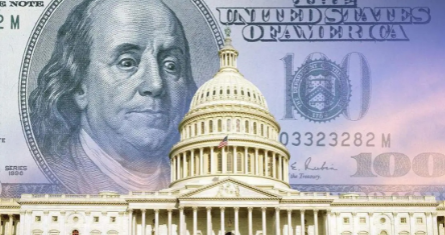 查看详情
查看详情美聯儲宣布維持基準利率不變 符合市場預期
當地時間1月28日,美聯儲最新的聯邦公開市場委員會(FOMC)貨幣政策會議紀要顯示,美聯儲決定將聯邦基金利率目標區間繼續維持在3.5%至3.75%之間。 會議紀要顯示,現有指標表明,就業增長仍處於低位,失業率已顯現出趨於穩定的跡象。通脹水平仍處於較高水平。委員會致力於實現最大就業和長期通脹率達到2%的目標。經濟前景的不確定性仍然很高。委員會密切關註其雙重使命面臨的風險。為支持其目標,美聯儲決定將聯邦基金利率目標區間繼續維持在3.5%至3.75%之間。 具體表決細節顯示,美聯儲以10票贊成、2票反對的結果,決定將基準利率維持在3.5%至3.75%區間。美聯儲理事沃勒以及米蘭投下反對票,主張降息25個基點。 在此次利率政策出臺前,市場普遍預期美聯儲將在本周政策會議上維持利率不變,此前該機構已在2025下半年連續三次降息。
2026-01-29

